Here’s the thing: you’re quiet. You don’t function the same way others do. And that’s perfectly okay. You’re an introvert – and you have nothing to be ashamed of. This post is all about the signs you are an introvert.
If you’ve just discovered the magical and empowering word “introvert,” I want you to know that you’re in good company.
Did you know that between 25% to 40% of people are introverts? And even those people in your life who seem loud and outgoing might be introverts too. (More on that soon!)
So the question is that now you’ve discovered you’re an introvert … then what? What do you do with that knowledge?
As an introvert with a mission, my job is to help you.
Related: Are You Naturally An Introvert, Extrovert, Or Ambivert: QUIZ
What is an Introvert?
The word introvert comes from the Latin intro (to the inside) and vertere (to turn). So in essence, introversion refers to the tendency to turn within; to live a rich inner life. Psychologically, the word introvert was popularized in the 1920s by Swiss psychiatrist Carl Jung. Jung proposed that there were two main personality types: introverts and extroverts.
Everyone has a tendency to lean toward either side of the spectrum. These days, an introvert is understood as a person who is quiet, enjoys spending time alone or with a couple of close friends, and prefers calm environments.
As I write in my book Quiet Strength:
“If you are an introvert, you are born with a temperament that craves to be alone, delights in meaningful connections, thinks before speaking, and observes before approaching. If you are an introvert, you thrive in the inner sanctuary of the mind, heart, and spirit, but shrink in the external world of noise, drama, and chaos.
As an introvert, you are sensitive, perceptive, gentle, and reflective. You prefer to operate behind the scenes, preserve your precious energy, and influence the world in a quiet, but powerful way.”
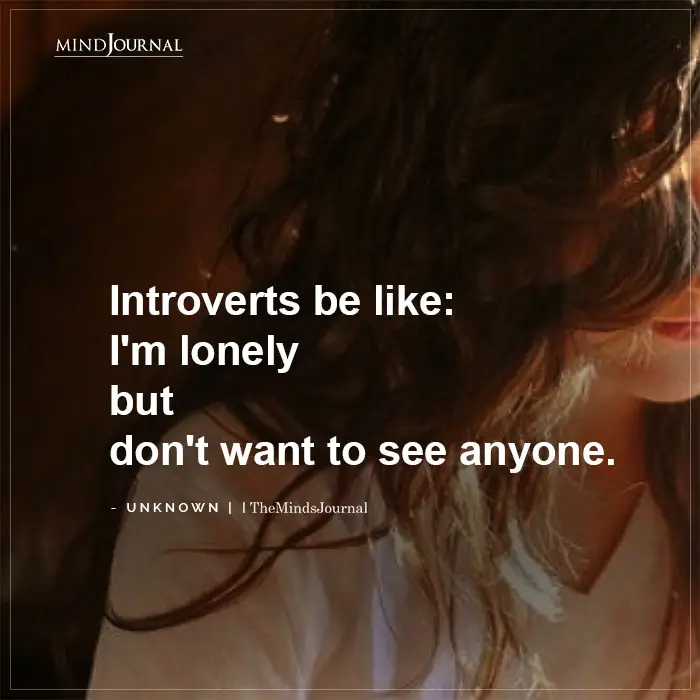
19 Signs You are an Introvert
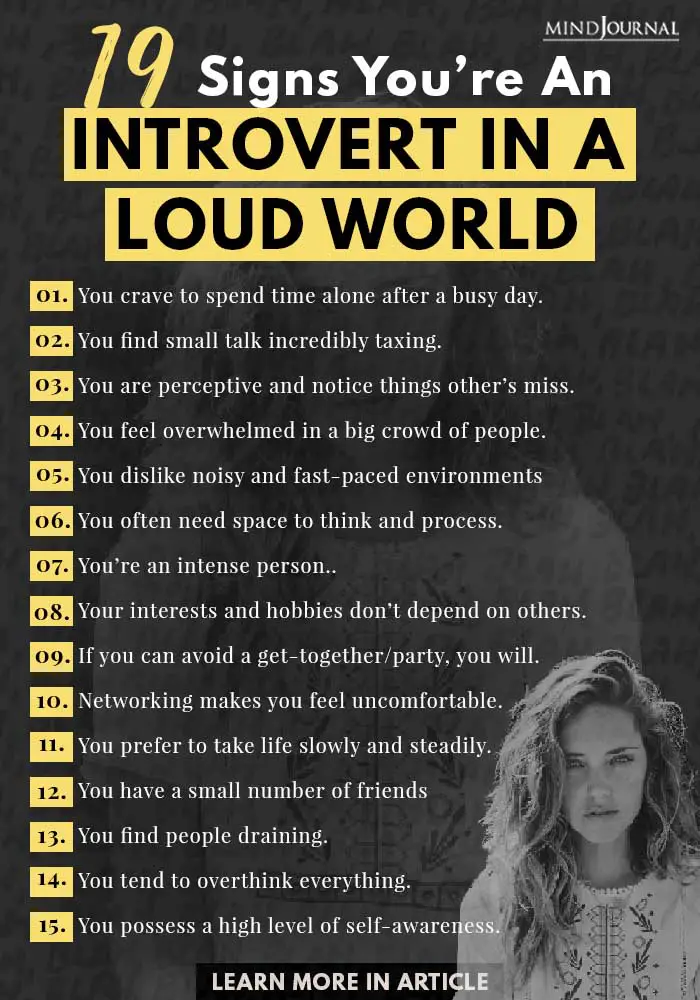
Here are signs to look out for:
- You crave to spend time alone after a busy day
- You find small talk incredibly taxing
- You are perceptive and notice things others miss
- You feel overwhelmed in a big crowd of people
- You dislike noisy and fast-paced environments
- You often need space to think and process
- You’re an intense person
- Your interests and hobbies don’t depend on others
- If you can avoid a get-together/party, you will
- Networking makes you feel uncomfortable
- You prefer to take life slowly and steadily
- You have a small number of friends
- You find people draining
- You tend to overthink everything
- You possess a high level of self-awareness
- You tend to ruminate and obsess
- Topics such as science, philosophy, and spirituality interest you
- You hate being the center of attention
- You’re a good listener, but struggle to speak your thoughts
How many of these introvert signs can you relate to? Share in the comments!
Related: 10 Things That Make An Introvert Happy
15 Myths About Introverts
We’re the creative Dr. Seuss, the soulful singing Adeles, and the eccentric Salvador Dalis. We constitute a great percentage of the world’s best thinkers, philosophers, scientists, and artists. Yet we find ourselves bullied, belittled, and misdiagnosed as being socially inept and even threatening.
If one of the highest instincts in mankind is self-preservation, it’s no wonder that many people fear what they don’t understand: the quiet introvert.
Here are the top 15 myths about introverts summarized:
- Myth 1 – Introverts are arrogant
- Myth 2 – Introverts are rude (they’re surly and ill-mannered)
- Myth 3 – Introverts always want to be alone
- Myth 4 – Introverts don’t like to go out (they’re agoraphobic)
- Myth 5 – Introverts have no friends (they’re losers)
- Myth 6 – Introverts are depressive people
- Myth 7 – Introverts are weirdos
- Myth 8 – Introverts hate people (they’re misanthropes)
- Myth 9 – Introverts don’t like to talk (they have nothing to say)
- Myth 10 – Introverts are uptight party-poopers (they can’t have fun)
- Myth 11 – Introverts are mentally inept (they’re stupid)
- Myth 12 – Introverts are sneaky (they’re sly and devious)
- Myth 13 – Introverts are shy
- Myth 14 – Introverts have low self-esteem
- Myth 15 – Introversion is an affliction that can be fixed
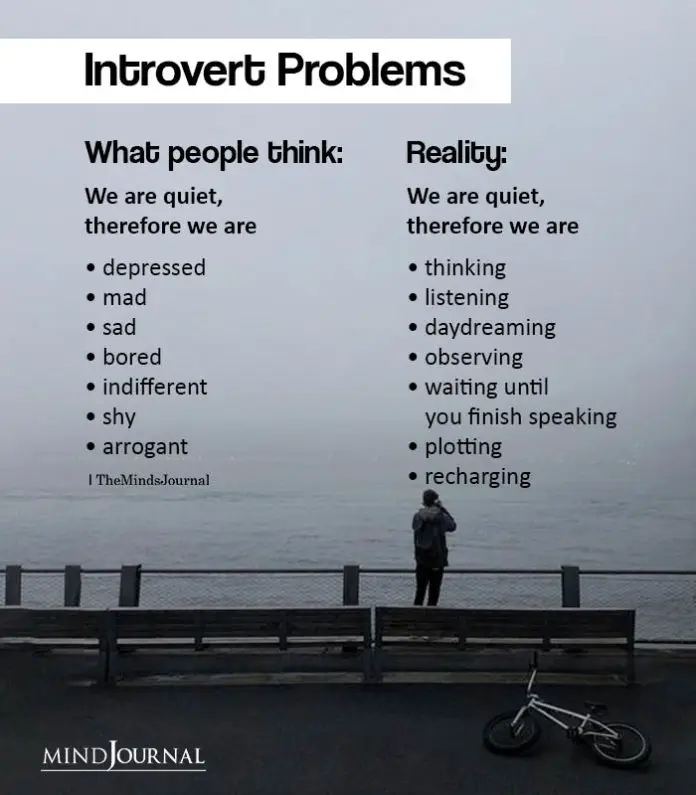
Read more about these myths below:
Myth #1: Introverts are arrogant
Truth: We’re socially cautious
It’s true that introverts can come across as being cold or aloof, but this is because we’re preoccupied with thinking and processing information internally. We also like to keep to ourselves around people who aren’t close to us and take great precautions in uncharted territory. This makes us appear standoffish, for sure, but our silence isn’t snobbish self-aggrandizement.
If we don’t interact with you much, it isn’t because we dislike or think we’re too good for you. It just means that we’re still cautious of you or simply want to keep to ourselves.
Myth #2: Introverts are rude (they’re surly and ill-mannered)
Truth: We’re selectively social
We can be blunt, and appear slightly bored and impatient at times, but this is because small talk disinterests us. We prefer intimate and meaningful conversations. We also become physically drained easily if we’re around too many people for too long.
This can make us appear not only rude but avoidant as well, especially if we’ve been invited to parties and social functions that we turn down. This is simply a quirk of our natural temperaments. We rarely intend to be deliberately rude
Myth #3: Introverts always want to be alone
Truth: We’re easily drained
Being an introvert is not the same as being a lone wolf. (And even if it is, what’s wrong with being a loner anyway?) The truth is that the majority of introverts don’t like to always be alone.
Frequently, we have one or two close friends we like to spend time with – but at certain times and levels. Although we value and thrive in ‘alone time,’ we value small doses of social time as well.
Myth #4: Introverts don’t like to go out (they’re agoraphobic)
Truth: We’re internally stimulated
Although we like to spend a lot of time indoors, we don’t suffer from a collective mental illness. We find our stimulation inside of ourselves – with our thoughts and our own hobbies. This means that we don’t need to “go out” all that often, as we already have what we need to thrive.
Introverts also value the comfort, safety, and privacy of their own personal environments, which may lead us to stay indoors more than other people. We usually don’t mind going out – but it just isn’t necessary for us.
Related: 25 Introvert Vs Extrovert Memes That Will Make You Go “Oh Yeah, That’s Right!”
Myth #5: Introverts have no friends (they’re losers)
Truth: We’re intimately selective
It’s true, we struggle to make friends in many cases. But this is because we selectively pick people who we think would make worthy long-term companions. Many introverts have one or two friends to confide in, but the fact that we take a while to open up to people means that it’s difficult at first for us to make friends.
This is why many introverted children and teenagers find themselves friendless in school. It doesn’t mean they exclusively always like to be alone without any companions.
Myth #6: Introverts are depressive people
Truth: We’re quietly complacent
Just like depressive people, introverts can come across as being quiet and detached. The essential difference between depressed people and introversion is that introverts are complacent in their quietness, whereas depressive people are dissatisfied with their quietness.
Yes, there is such a thing as a depressed introvert, but the majority of introverts are quietly content in their world. They aren’t in constant conflict with themselves and the universe, although they do occasionally face issues, they aren’t trapped in them, as depressive people are.
Myth #7: Introverts are weirdos
Truth: We embrace eccentricity
It’s unfortunate that, out of fear, many people make sweeping generalizations about the nature of introverts. Being a twisted lunatic is just another of them.
True, we may do things differently and have unconventional quirks that deviate from the popular norm, but we aren’t dangerous or completely mad. Introverts feed on their own inner world and mind, not other people’s.
This tendency to go/live within makes the introvert’s behavior at times odd, and other times unique. Perhaps this was how the world made its greatest progress: through its introverted scientists and thinkers and their individual eccentricities which didn’t recycle the same repeated ideas.
Myth #8: Introverts hate people (they’re misanthropes)
Truth: We value people
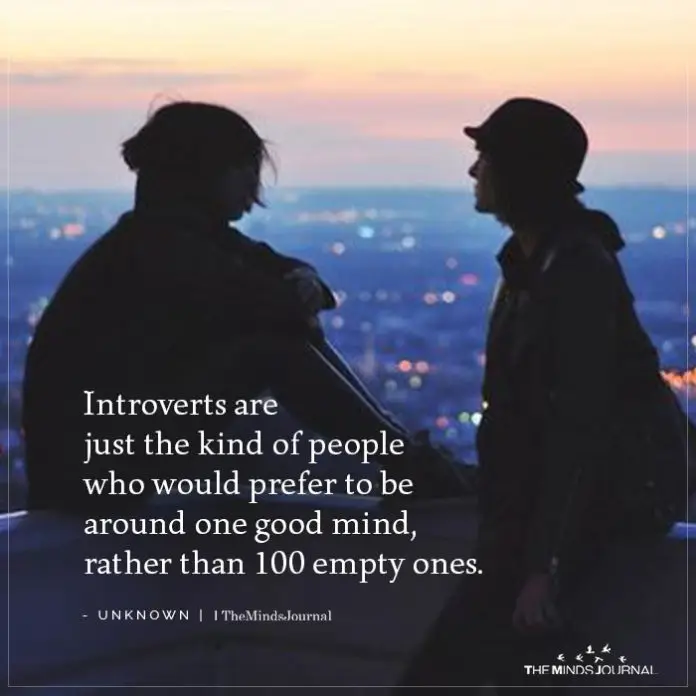
As quiet, thoughtful, and occasionally skeptical people, introverts can come across as being people-haters. Of course, it can’t be said that 100% of introverts value people, but a vast majority of them do. Besides, not liking being around people does not equate to not liking people themselves.
Introverts just value calmness and people in small doses, which is why they can come across as being brusque and short-tempered in hyper-active people-populated environments.
Related: Signs Of Introversion: 8 Ways Introverts Interact Differently With The World
Myth #9: Introverts don’t like to talk (they have nothing to say)
Truth: We speak selectively
While some people spit out anything that comes to mind, introverts prefer to quietly hang by the fringes. They prefer to think before speaking, and closely listen to what is being said before contributing. If too many people are present, introverts usually have a hard time getting any word in, so decide to remain silent instead.
There’s no point voicing a well-thought-out opinion if it will fall on deaf ears. As a result, introverts are usually labeled falsely as people who don’t like to speak or who have nothing to say. The truth is, we just speak selectively.
Myth #10: Introverts are uptight party-poopers (they can’t have fun)
Truth: We’re uniquely fun
Introverts make their own fun and tailor it to suit themselves and their own unique needs. Sure, we may not like to participate in drunken karaoke or sip piña coladas in elite social clubs. But we have fun in different ways – like book clubs, making gnomes in pottery classes, and designing our own web comics.
Sure, we may come across as being uptight and uncomfortable in socially “fun” and overwhelming situations, but this isn’t because we’re party-poopers. We just prefer to have fun in different ways.
Myth #11: Introverts are mentally inept (they’re stupid)
Truth: We’re insightfully intelligent
Many people falsely assume that introverts are unintelligent because, one, they don’t frequently voice their ideas and thoughts, and two, they’re too quiet.
The fact is, if people just stopped to listen and observe, they would see that the introvert has a fountain of useful knowledge and well-constructed thoughts to contribute. Quietness does not equal stupidity, and neither does loudness equal intelligence.
Myth #12: Introverts are sneaky (they’re sly and devious)
Truth: We value solitude
This is one of the more bizarre myths about introverts out there. Some people assume that because introverts go off by themselves a lot, they have something to hide. Many people also become suspicious of introverts, especially when they share so little of themselves with the world.
The truth is, introverts aren’t evil or sneaky. Perhaps some possess these traits, but most introverts simply need alone time to re-cooperate and revitalize – not build bombs or swindle people.
Myth #13: Introverts are shy
Truth: We are reserved
It’s true that many shy people are introverted. Yet not all introverts are shy – they’re just reserved, or in other words, they like to keep to themselves and not involve themselves in the affairs of other people too much.
The difference between shyness and introversion is that shy people are scared of social contact, introverts aren’t. They just prefer to avoid it in large quantities.
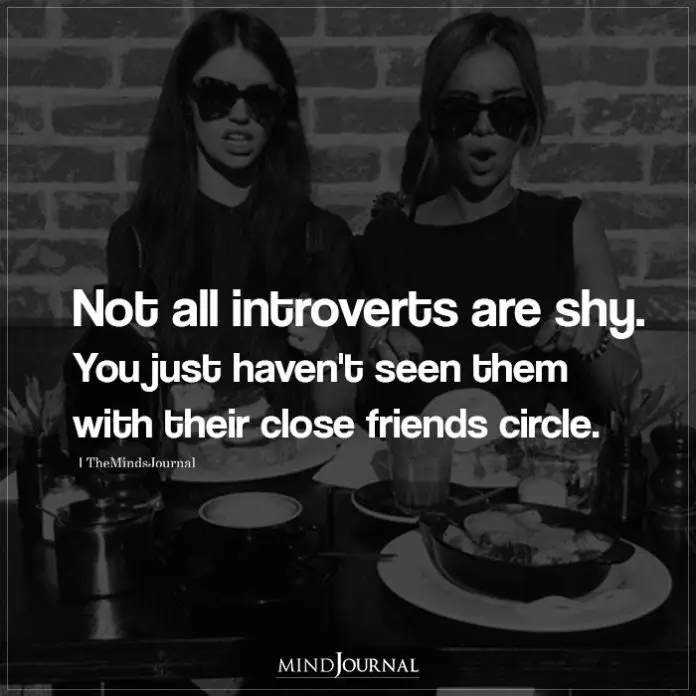
Myth #14: Introverts have low self-esteem
Truth: We are sensitive but strong
Of course, low self-esteem is common to many people, and introverts are no exception. But most importantly, introversion is not defined as possessing low self-esteem. Even extroverts and ambiverts have low self-esteem.
The point is, by default, introverts don’t suffer poor self-esteem. Being quiet and detached from other people at times is not an instant marker of self-hatred or poor self-confidence.
Myth #15: Introversion is an affliction that can be fixed
Truth: Introversion isn’t curable, nor is it an affliction
If introversion is a deeply embedded personality temperament mostly determined by genetics, then it can’t be “cured.” It’s also false to assume that introversion is some kind of curse that should be fixed.
Certainly, being introverted has many downfalls (including all the false myths described in this article), but it also has many perks and positives. In many ways, it’s actually a gift.
Introverts, Self-Growth, and Spirituality
Introversion and spirituality is a topic that is rarely covered. Yet when we consider the origins of the word introvert (from introverted meaning to turn within), we find an intriguing correlation between this personality type and a thirst for self-growth.
According to Lexico, the word introvert was first recorded in the 17th century and came to mean to “turn one’s thoughts inwards (in spiritual contemplation).“
How intriguing is that? The concept of introversion was first connected to spiritual contemplation.
And indeed, we notice that many figures throughout spirituality are introverted such as Gautama Buddha, Moses, and Lao Tzu – and pretty much any mystic or sage you can think of shares this trait.
How many loud, outgoing, and gregarious spiritual figures can you think of? I’m sure there are a few (such as the Dalai Llama). But most are on the quiet and reclusive end.
Why do introverts incline so deeply toward spirituality and self-growth?
The answer is that they have an innate knack for it. As an introvert’s energy is already turned inwards, it’s not that great a leap to enter the spiritual path.
Indeed, at some point or another, many introverts undergo what is known as a spiritual awakening process. And to some extent, nearly all introverts are fascinated by the question “What is the meaning of life?” This deep question (that requires a lot of inward-looking!) naturally expands to all aspects of life.
Some introverts, for example, gradually discover that they’re empaths or old souls, while others discover great meaning and purpose in their spiritual gifts. Others keep searching and eventually use their introversion to fuel mystical experiences, moments of Oneness, or self-realization.
The path of Involution
When we’re talking about introverts, self-growth, and spirituality, probably one of the most suited paths is that of Involution.
Involution is a philosophy of life – it means consciously committing to internal transformation. (How perfectly suited to introversion does this sound … ?!)
There are seven paths of Involution that you can explore. Each one builds upon the other and helps you to grow as a person, on all levels. See our Involution article to learn more about this fascinating, transformational path if you’re an introvert who’s interested in spiritual growth.
Related: The Quiet Introvert: 5 Reasons Why An Introvert Isn’t Talking
35 Enlightening Books For Introverts On Silence, Solitude, and Simplicity
Books. They are loyal companions and the truest of friends. They’re the only objects you can buy that make you richer, and your investment of time in them is often returned to you tenfold.
Understandably, introverts love books. They are doors that allow us to access opportunities for greater insight and understanding about other people, ourselves, and the world – and that’s right up our alley.
Books are perhaps the single most valuable and inspiring tools we can welcome into our lives as introverts. Because of that reason, I’ve compiled a list of books to read for introverts below. All these books should, in one way or another, make you proud of your introverted tendencies:
Man and Solitude
– Desolation Angels, by Jack Kerouac
– Stillness: Daily Gifts of Solitude, by Richard Mahler
– Alone, by Richard E. Byrd
– Desert Solitaire: A Season in the Wilderness, by Edward Abbey
– Solitude: Seeking Wisdom in Extremes – A Year Alone in the Patagonia Wilderness, by Robert Kull
Woman and Solitude
– Drinking the Rain, by Alix Kates Shulman
– Fifty Days of Solitude, by Doris Grumbach
– Listening Below the Noise, by Anne D. LeClaire
– Journal of a Solitude, by May Sarton
– Where God Begins to Be, by Karen Karper
Solitude (General)
– Quiet Strength: Embracing, Empowering and Honoring Yourself as an Introvert, by Aletheia Luna
– Celebrating Time Alone: Stories of Splendid Solitude, by Lionel Fisher
– The Call of Solitude: Alone time in a World of Attachment, by Ester Schaler Buchholz
– Loneliness: Human Nature and the Need for Social Connection, by John T. Cacioppo & William Patrick
– Migrations to Solitude, by Sue Halpern
– Going Solo: The Extraordinary Rise and Surprising Appeal of Living Alone, by Eric Klinenberg
– Aloneness in America: the Stories that Matter, by Robert A. Ferguson
– Poustinia: Encountering God in Silence, Solitude, and Prayer, by Catherine de Hueck Doherty
– Solitude: A Return to the Self, by Anthony Storr
– The Labyrinth of Solitude, by Octavio Paz
– The Greatest Escape: Adventures in the History of Solitude, by David Balcom
– Party of One: The Loners’ Manifesto, by Anneli Rufus
Solitude (Fiction)
– Steppenwolf, by Hermann Hesse
– Notes From the Underground, by Fyodor Dostoyevsky
– Invisible Man, by Ralph Ellison
– Savage Solitude, by Máighréad Medbh
Silence
– The Unwanted Sound of Everything We Want: A Book About Noise, by Garret Keizer
– In Pursuit of Silence: Listening for Meaning in a World of Noise, by George Prochnik
– A Book of Silence, by Sara Maitland
– Zero Decibels: The Quest for Absolute Silence, by George Michelsen Foy
Simplicity
– The Man Who Quit Money, by Mark Sundeen
– Voluntary Simplicity: Toward a Way of Life That is Outwardly Simple, Inwardly Rich, by Duane Elgin
– Walden by Henry David Thoreau
– The Moneyless Man: A Year of Freeconomics Living, by Mark Boyle
– Graceful Simplicity: Toward a Philosophy and Politics of Simple Living, by Jerome M. Segal
– Small is Beautiful: Economics as if People Mattered, by E. F. Schumacher
If you have any book suggestions, feel free to add them to this list in the comments!
Related: 7 Ways To Overcome Introvert Guilt And Embrace Your Inner Introvert
Extroverted-Introverts
What do Michelle Pfeifer, Julia Roberts, David Letterman, and Clint Eastwood have in common? They’re all extroverted-introverts. And it’s an increasing phenomenon.
Thanks to the Western world’s favoritism of extroverts, we introverts increasingly find ourselves needing to be chameleons and adapt to our surroundings.
But while there are benefits to temporarily tapping into your inner extrovert, we need to be careful of our energy levels. Adopting the extroverted-introvert guise can, unfortunately, lead to burnout, anxiety, and sometimes even depression.
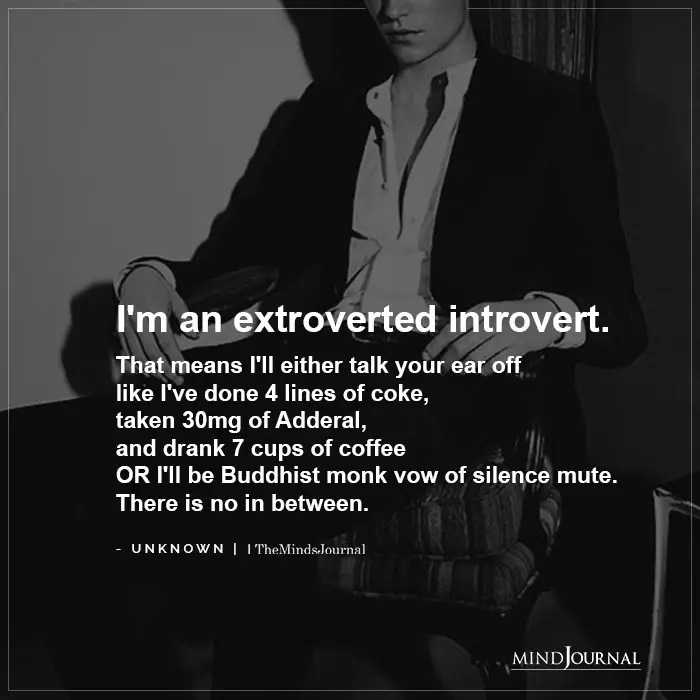
Here are some signs that you’re a struggling extroverted-introvert:
- You feel the need to live up to an identity you have created every time you go out.
- You are afraid that if anyone truly saw the “real you” they wouldn’t accept or like you.
- You feel somewhat like a fraud.
- You feel chronically tense and anxious.
- You feel exhausted and completely drained at the end of the day.
- You have poor immunity to sickness.
- You reject and/or ridicule your naturally quiet self and wish you could be “different” or like “everyone else.”
- You feel as though every interaction with others takes a lot of effort.
- You feel attached to the identity/mask/image you have created because you feel protected from others.
As I mentioned before, tapping into your extroverted self is not necessarily a detrimental or bad thing to do. Many times exuding energy is needed or necessary. However, when we are motivated by fear, anxiety, or low self-esteem, our masks can be destructive to our well-being.
If you have adopted an extroverted facade out of fear, anxiety, or low self-esteem, you might benefit from asking the following questions. Write down your responses on a piece of paper or digital document, and assess your thoughts and feelings.
This is an excellent way to better understand yourself, and change your actions from instinctual and unconsciously driven, to consciously driven:
- Why do I adopt this role?
- What insecurities and issues do I have that cause me to react with an extroverted mask? (Perhaps the issue is low self-worth, lack of trust in my abilities, excessive anxiety, inability to cope with others, etc.)
- What can I do about my insecurities and issues?
- If I feel the need to be liked, why?
- How can I practice more self-love and self-care?
- When do I put the mask on? Why?
- How can I cope with this situation differently?
- Why do other people’s opinions of me matter anyway?
- What’s the worst that could happen if I drop my mask?
- How can I excel without adopting this role?
I hope these questions help. The more self-awareness you develop, the more you will be able to accept the person you are with open arms – and shape your life that way.
Related: How Introverts, Empaths, HSPs, And Old Souls Are Different
There Are 4 Types of Introverts
Not all introverts are the same.
When you ask people what being an introvert means to them, their answers always vary. While some will tell you that it’s being a dreamer or sensitive person, others will tell you that it’s a person who loves solitude due to anxiety in social situations.
While Carl Jung did a great job of creating the Introvert-Extrovert spectrum, he didn’t provide any different types within the introvert category. The Big Five Personality Test tried to remedy this by labeling those who scored low on “Enthusiasm” and “Assertiveness” as introverts. But we all know that this is a very limited understanding of introversion and far from the truth.
In Jennifer Odessa Grime’s master thesis, she created four different meanings of introversion: the Social, Thinking, Anxious, and Restrained introverts (forming the acronym STAR).
We have built on this STAR model by creating four different introvert archetypes below. See which one of these four introvert archetypes you resonate with the most:
1. The Gardener (Social Introvert)
If you’re a Gardener introvert, you’re a person who doesn’t mind socializing as long as it’s with a small group of friends. In fact, sometimes you need to socialize, as long as you get long periods of time alone to recharge.
You aren’t intimidated by social events and you know the value of making time for yourself. You prefer to pursue your own interests and passions in-between the company of one or two people. You like to create quality intimate connections with a select few people – large groups are too overwhelming and stimulating for you.
You are “The Gardener” because you selectively pick people and social situations in your life, weeding out people, where necessary, in exchange for the fruits of intimacy with yourself or a close friend.
Related: Introverted Personality: Why Introverts Feel So Closely Connected With Animals
2. The Protector (Anxious Introvert)
If you’re a Protector introvert, you feel painfully self-conscious around other people, especially when near strangers. It takes time for you to warm up to new people and overcome your shyness. You are the kind of person who holds very high expectations of yourself which tends to cause you a lot of stress.
To you, solitude is attractive because it gives you a break from other people. But even in solitude you sometimes feel anxious. This is because you have a tendency to ruminate and turn over in your mind the things that might, could, or have already gone terribly wrong. Your thoughts are often focused on parts of your life that you wish could have gone differently.
You are “The Protector” because you are hyper-vigilant and desire to protect yourself from embarrassment in social situations. This is at the root of your shyness.
3. The Dreamer (Thinking Introvert)
If this is your dominant archetype, you are an introspective, thoughtful, and self-reflective person. You often get lost in the whimsical, imaginative, and creative worlds of your mind. You have a rich, complex inner life, and you often think about what kind of person you are.
When you read an interesting book or watch a compelling movie, you might think about how you’d feel and react if you were in the character’s situation. You are finely tuned into your feelings, and you often evaluate yourself from a distance. Daydreaming and fantasizing are habits that come to define a lot of your life.
You are “The Dreamer” because you are lost in your own inner world of fantasy and reflection most of the time.
4. The Architect (Restrained Introvert)
If you’re an Architect introvert you like to take things slowly. You’re not one to be “up and ready” right away when you wake up in the morning. You find it difficult to be impulsive and spontaneous as you like to take your time doing things and hate pressure.
You’re a deliberate and cautious person, and you like to think things through before you act or speak. Forethought is one of the greatest qualities you value in yourself. Introverted author Haruki Murakami is a perfect example of The Architect. He writes in one of his books, “When I put on my jogging shoes in the morning and set out, my feet are so heavy it feels like I’ll never get them moving.”
You are “The Architect” because you take your time to construct your actions and words in a world that values fast-paced living.
So which type of introvert are you? Let me know in the comments.
Related: Introverts Signs: Things To Know Before Dating an Introverted Man
Take Our Free Introvert / Extrovert Test
If you’re wanting to find out what percentage of introvert, extrovert, and ambivert you are, I recommend taking our free Introvert or Extrovert test. Enjoy!
Introverts live in a rich inner world. If you are an introvert, be proud of who you are, honor your energy levels, and don’t be afraid to set boundaries (but also reach out when necessary). As a person who tends to look within a lot, you are blessed with the ability to think creatively, develop analytical prowess, as well as delve into the world of spirituality (if you so desire).
Want to know more about the signs you are an introvert and an introverted personality? Check this video out below!
Written By Aletheia Luna Originally Appeared In Loner Wolf
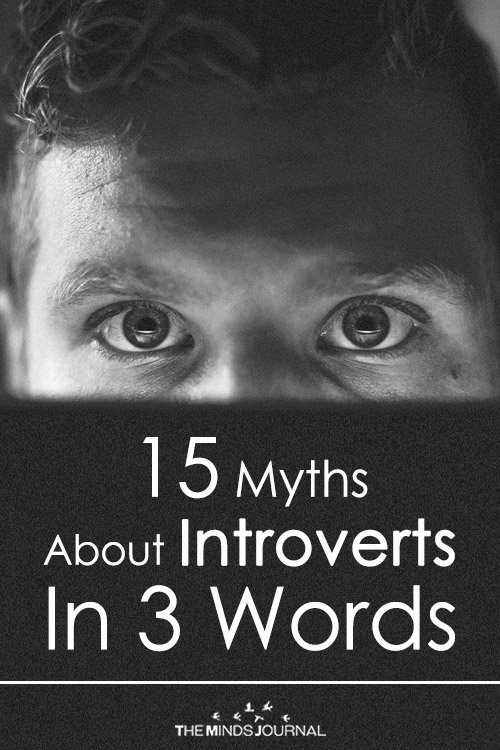

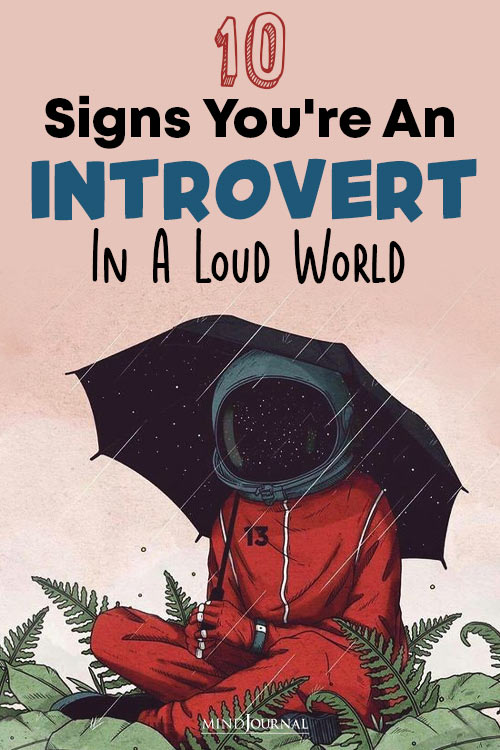
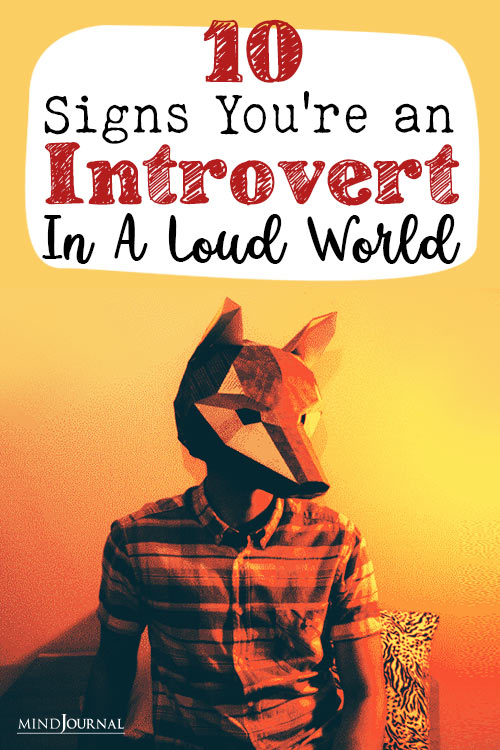
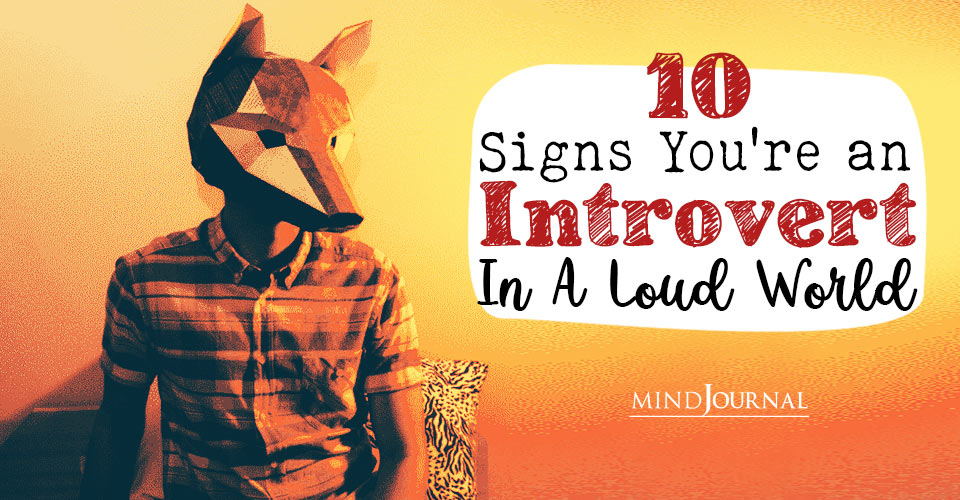
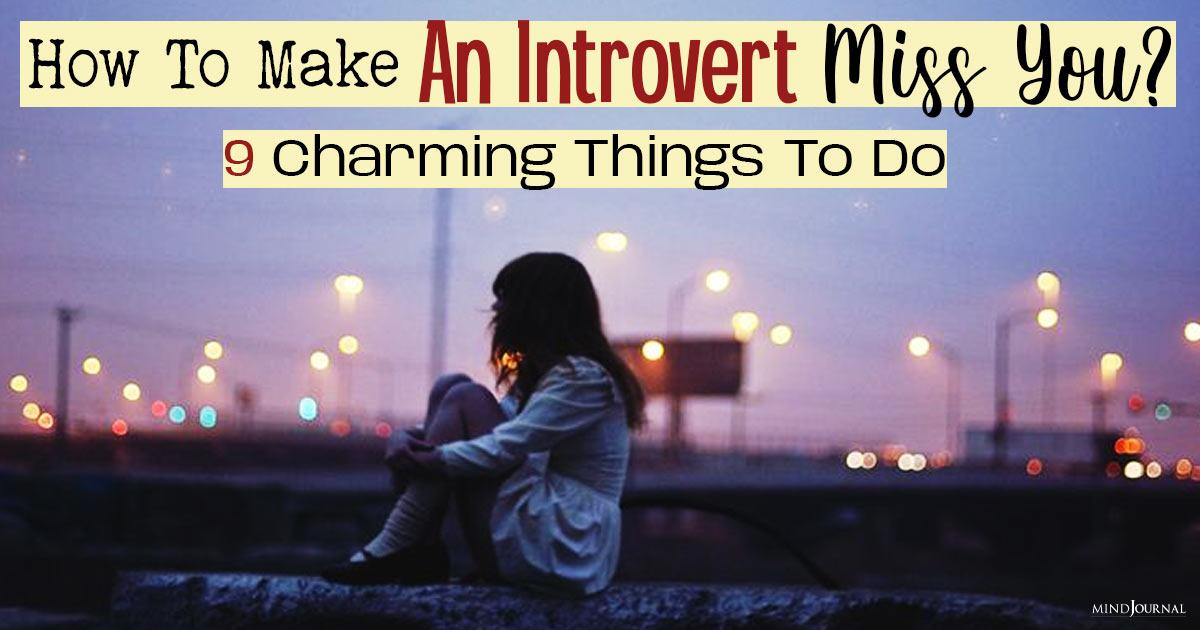
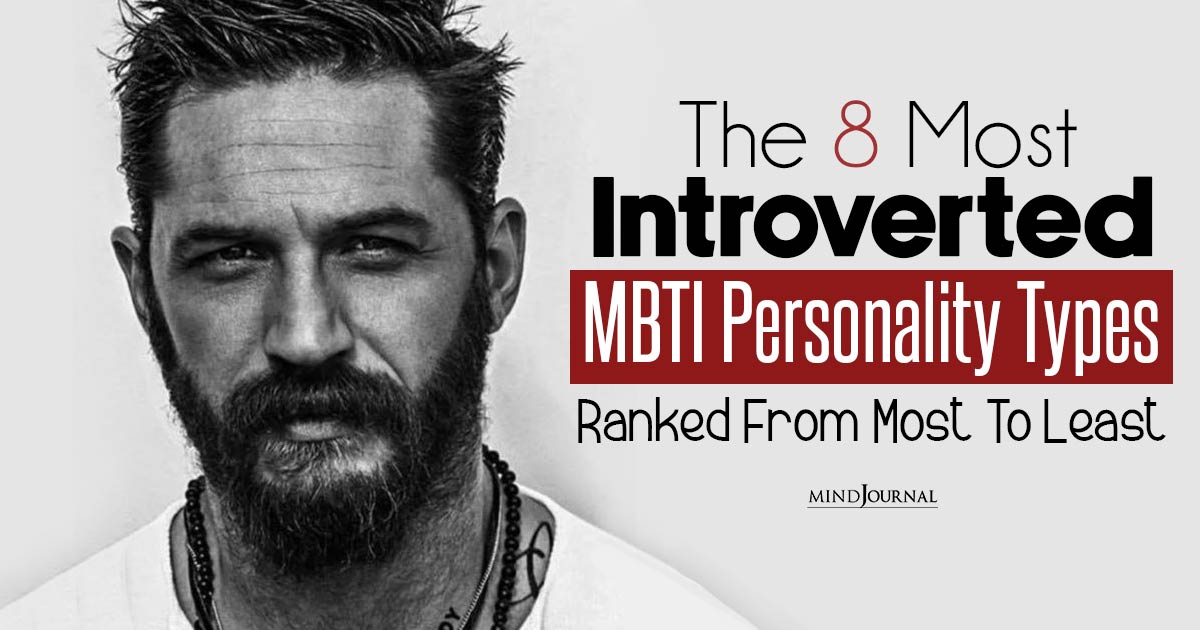
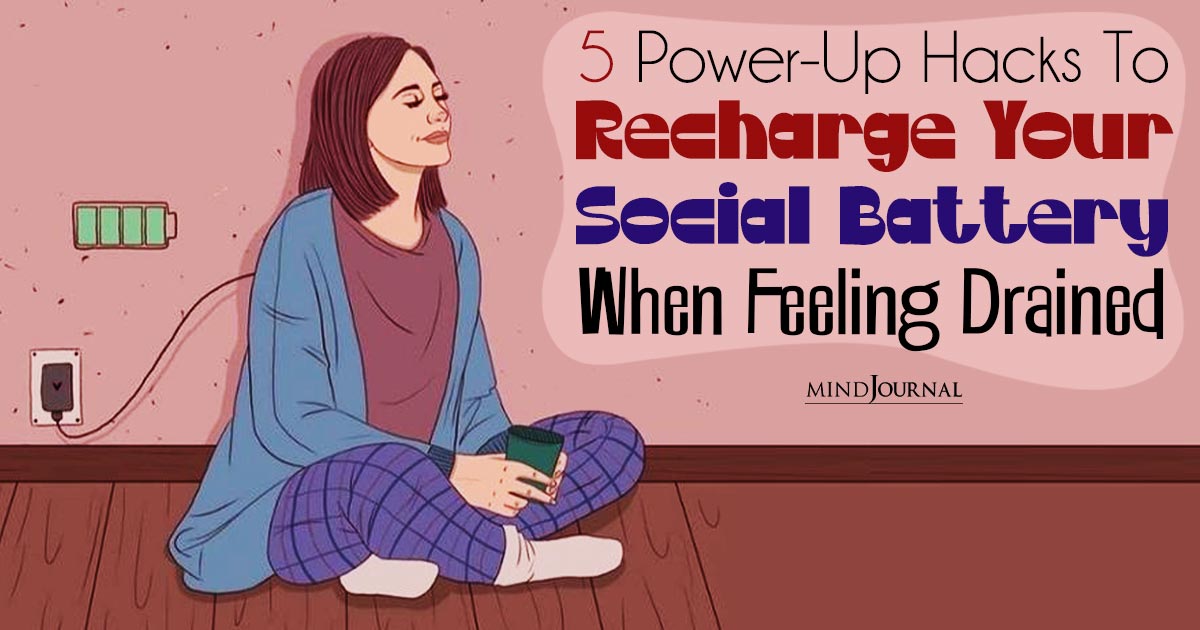
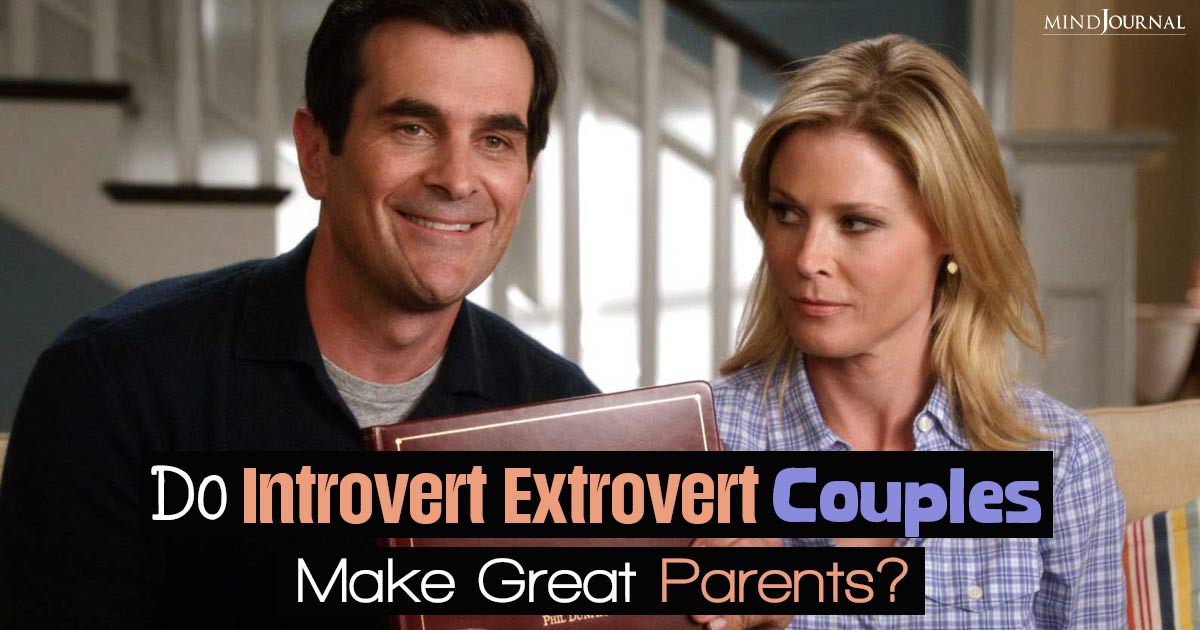
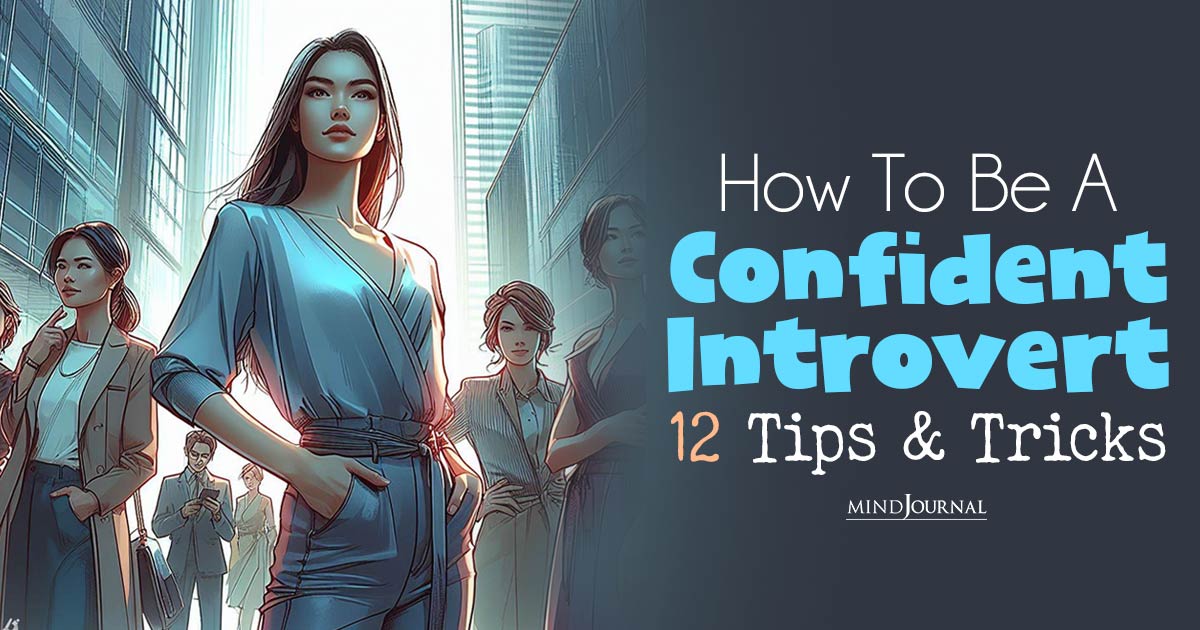

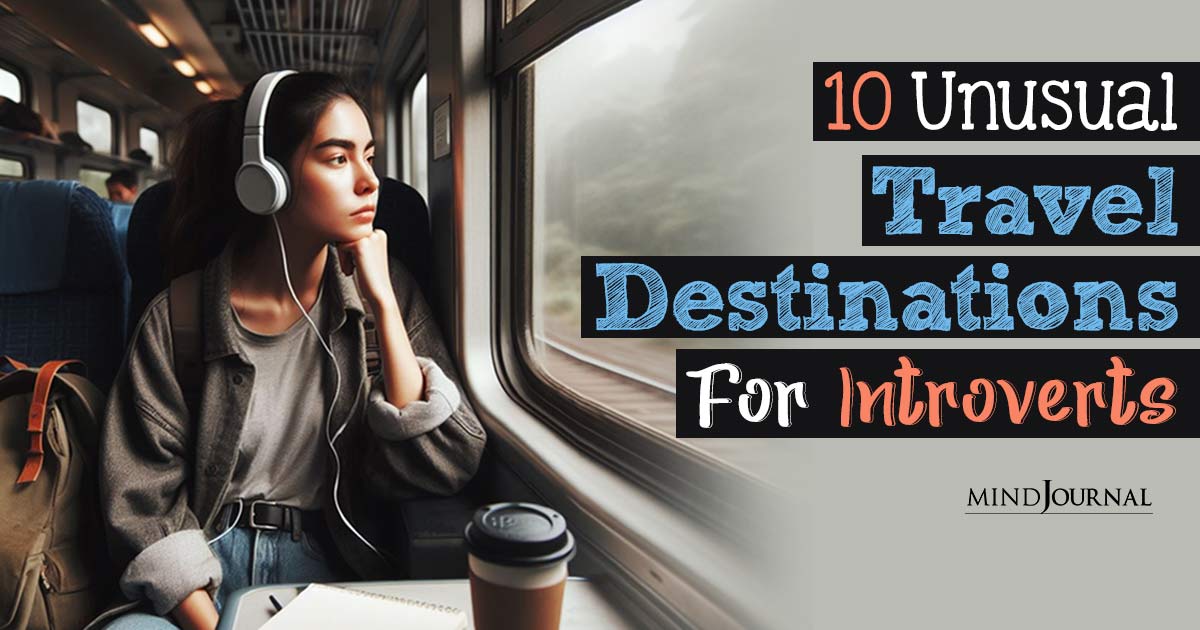
Responses
3